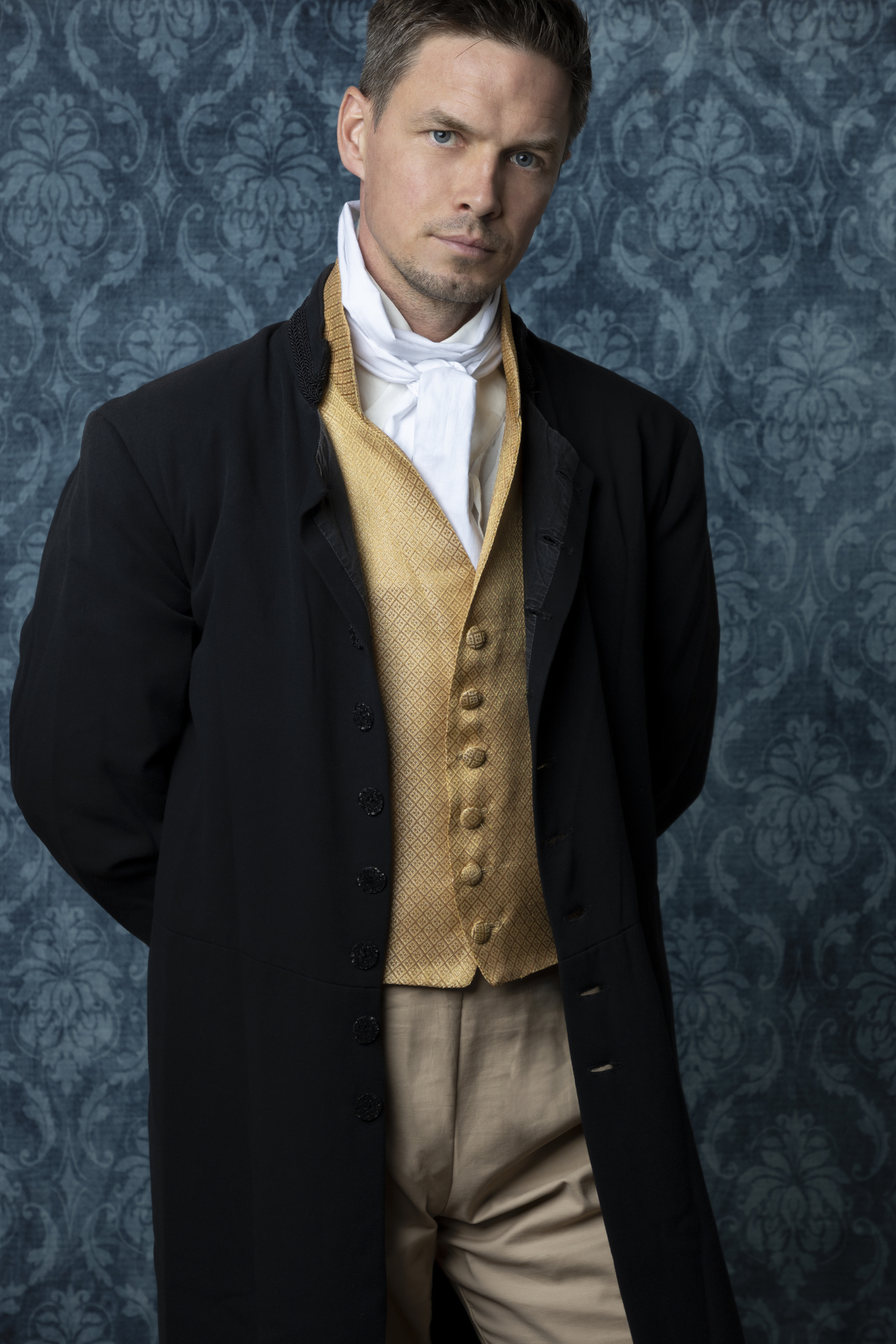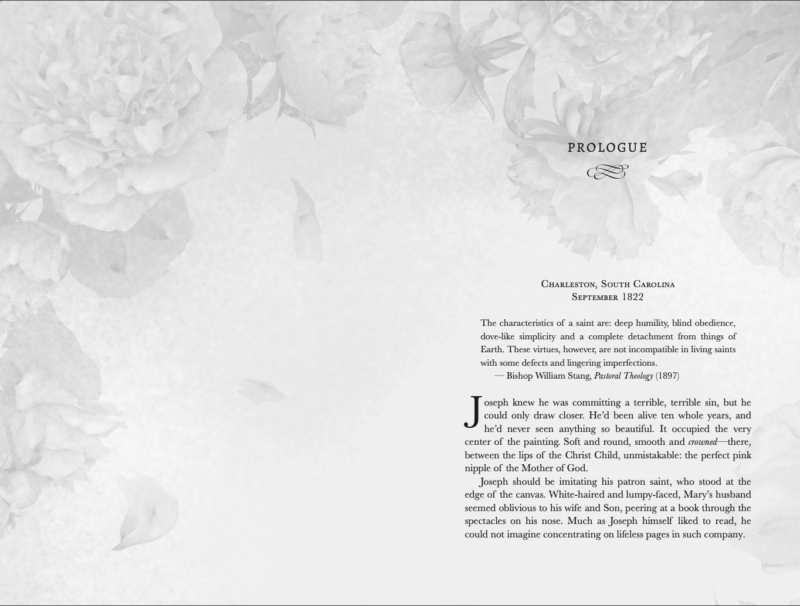On Second Thought…
"Ring out the old, ring in the new…" — Alfred, Lord Tennyson, In Memoriam (1850)
In November-December 2021, I completed a new edit of the entire Lazare Family Saga. I am a perfectionist; I could honestly go through these long books every year and find things to change. But I shall endeavor to be satisfied with Version 2021. My primary purpose was to make certain I was happy with the text of all four books before they become “set in stone” in audio format. This should happen in 2022, depending on how long it takes me to find a narrator and his or her availability.
As for the ebook and print editions, the beauty of being an indie author is that I can make changes at any time. These edits weren’t substantial enough to qualify as a revised edition; they were mostly a scattering of line edits for clarity.
I did tweak some scenes with Joseph and David. I have always loved these characters, because—not in spite of—their flaws. But I’ve realized that some readers find them difficult to like, so I’ve tried to soften some of Joseph and David’s reactions to keep them more sympathetic. One of my earliest readers said I have a tendency to “turn it up to 11,” referencing the hilarious film This Is Spinal Tap. And yes, yes I do. Teenage me who conceived these characters wasn’t satisfied with wounded heroes; they had to be profoundly screwed up so that their redemption was as dramatic as possible. But I sometimes crossed the line into melodrama. So I’ve tried to rein in my over-the-top impulses while retaining Joseph and David’s authentic Catholic/Victorian wounds.
I also realized that a scene between Clare and Verily was more focused on the heroism of White mistress Clare teaching her enslaved Black maid Verily than it was on Verily’s agency and desire to read. This was a holdover from an earlier draft and a less socially conscious version of myself. Shame on me, regardless. So I tweaked that scene too.
The other significant edit I made was in changing the first name of the English-born plantation steward Mr. Cromwell—most characters use his last name—from Byron to Lucas. He’s a tricky man to name because of his duality. (HERE BE POTENTIAL SPOILERS.) Cromwell is gorgeous and brilliant—and ruthless. Multiple characters mistake him for a good guy, even a romantic figure—which is exactly what he wants them to think, because he’s actually a villain.

What would you name this man?
This model is a decent physical match for Cromwell, although his attire is more Regency, a few decades before the 1850s when the character appears in my story.
(Image source: Servian Stock Images via Depositphotos)
In my early drafts, Cromwell’s first name was Lyndon. I liked the idea that “a boy named Sue,” a young man with a “weak” name, became tougher because of it. But in a pivotal scene in Book 4, Cromwell forces a female character to say his first name, and I didn’t want something “wimpy” in this context of sexual threat. Since Cromwell is Byronic—”mad, bad, and dangerous to know” in the immortal words of Lady Caroline Lamb—I changed his name to Byron. But I was never really happy with it; Byron was too on the nose, and it was “de trop” to name him after two larger-than-life English historical figures. (“De trop” = excessive, literally “too much” in French.)
The Cromwell half had to stay. In fact, this is the only character name that hasn’t changed over the course of three decades. As I explain in Book 2, this name is meant to recall the ambitious and ruthless Oliver Cromwell, “the butcher of Drogheda” (the real place in Ireland, not the fictional one in Colleen McCullough’s The Thorn Birds). I also love the sound of Cromwell, the harsh opening and the soft conclusion—back to that duality.
I needed a first name with more subtlety, but I couldn’t find it. Then I listened to the audiobook of Courtney Milan’s A Kiss for Midwinter in-between December 2021 edits, and the name of one of her supporting characters lit a lightbulb in my brain: Lucas! It was perfect! It recalls both Lucifer, a traditional name for the Devil, and Luke from The Thorn Birds. Yet Lucas also sounds proper and sexy. Thank you, Courtney Milan! (Seriously, check out her books. She’s awesome.)
Changing Byron to Lucas created a small domino effect: I had to make sure that my find and replace function didn’t eliminate the times I still wanted to say Byron (the poet). I also had to change the name of a minor character in Book 3 who was called Luke, and I had to make sure that find and replace didn’t eliminate the times I still wanted to say Luke (the saint). Oh, the joys and challenges of being an indie author with technology at my fingertips!

Please note: although all of these changes are now live on Amazon, they’ll take a few weeks to show up in the copies you can buy from other places like Bookshop.org. It’s complicated! And if you buy a used copy of my books, none of these updates will be present. (I the author and publisher also won’t receive a penny of compensation from such a purchase.)
Why didn’t the name Lucas—or any of these other text changes—occur to me earlier in the three decades I’ve worked on this series? I can only quote the saying: “Hindsight is 20/20.” I’ve been so close to this series for so long, I had whole passages memorized. It’s difficult to edit in such a state. Only several months’ distance and a larger pool of reader feedback have provided me with the perspective I needed.
I do apologize to any readers currently in the middle of The Lazare Family Saga who are tripped up by these changes, in particular Byron Cromwell becoming Lucas Cromwell. Hence this explanatory blog post. As Joseph would say, “Mea culpa.” You have witnessed the imperfect and dynamic creative process. 🙂
